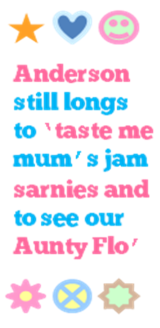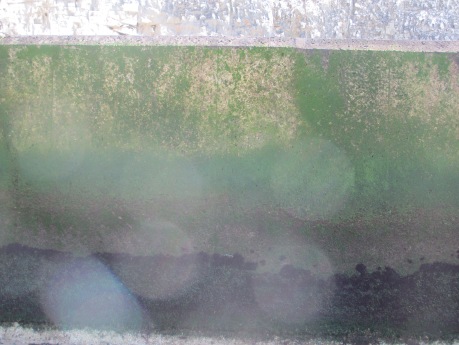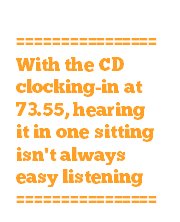
I recently returned from a thoroughly enjoyable though characteristically wet week in Blackpool so I thought I’d Take Three Songs about the northern seaside town.
She Sold Blackpool Rock
Performed by Honeybus
Written & lead vocal by Ray Cane
Produced by Ivor Raymonde
Deram A-Side, May 1969

Ivor Raymonde’s string quartet is too overly refined to evoke Blackpool but that scarcely matters, the precise seaside setting is incidental though Blackpool sounds and feels right in a way that Brighton or Bangor would not.
Ray Cane was a Londoner; whether he ever visited Blackpool I have no idea. She Sold Blackpool Rock is less about the place, more about a bitter-sweet memory of a summer seaside girl who ‘sold Blackpool rock in a funny hat’.
I loved this song on first listening and love it still, so much so I’d hesitate if asked to name I Can’t Let Maggie Go or She Sold Blackpool Rock as my favourite Honeybus single which surprises me. Maggie is imbued  with Pete Dello’s finely spun, almost scholastic Englishness whereas Ray Cane’s Blackpool Rock, though baroque pop by any other name, sits squarely centre stage just crying out to be a huge hit. And yet somehow it wasn’t.
with Pete Dello’s finely spun, almost scholastic Englishness whereas Ray Cane’s Blackpool Rock, though baroque pop by any other name, sits squarely centre stage just crying out to be a huge hit. And yet somehow it wasn’t.
Sweet memory
How that simple melody effortlessly finds its way into your head… The string quartet (sweetness of the memory flooding back?) contrasts perfectly with Colin Hare’s jangly guitar, Pete Kircher’s tasty drums and some very late 60s tambourine. Jim Kelly supplies occasional, understated countryish licks, the chorus breakout harmonies are, of course, loveliness incarnate and we get the hoped for ‘aah!’ leadoff.
Yet despite such impeccable late 60s pop credentials, it is Cane’s thoughtful, subtle touches as a songwriter which really make the song special.
Goes right through
The letters in the rock have different meanings as the story progresses. They are the secret between him and the girl which begins as a playful encounter (his opening chat-up line, perhaps) then becoming fleeting intimacy ‘(the games we played’) and, years later, a rediscovered memory (‘I remember her, How could I forget?’).
And he cleverly uses that tell tale lyric
Then she told me that she knew,
How they make the letters go right through
to form a conceit running through the entire song both musically and lyrically; the lines make up the vocal counterpoint underpinning the build to the second chorus, (‘Then she told me that she knew…’) and then return as the wistful afterthought beneath the leadoff (‘…how they make the letters go right through.’)
and then return as the wistful afterthought beneath the leadoff (‘…how they make the letters go right through.’)
Magic bus
Pete Dello left Honeybus in the wake of Maggie’s big chart success. He may have been a huge loss to the band but no more than here, Ray Cane shows he could step up to the breach as chief songwriter. His gently yearning voice on Blackpool Rock is just right too.
This glance back to a treasured sunny seaside day from the standpoint of winter gathers extra poignancy by being Honeybus’ last single of the 60s making the splendid last minute Beatlesque slow fade like a long, slow sunset across the Irish Sea.
Up the ‘Pool
Performed by Jethro Tull
Written and produced by Ian Anderson
Life Is a Long Song EP, Chrysalis, September 1971
Available on Living in the Past, double album, June 1972

Despite being Scottish born (and a resident of Scotland still), Ian Anderson spent his teenage years in Blackpool. His abiding affection for the place is obvious in this postcard portrait shot through with an endearing down-to-earthness hinting at the bawdy. Anderson never stints on the warts and all, unpretentious, working-class nature of the place with its bingo, tea swigging, ‘old vests, braces dangling down’.
Go north
Presumably written during the period of Tull’s early successs, Up the ‘Pool describes a return trip for Anderson as he travels ‘from down the smoke below.’ By 1971, Jethro Tull had toured with Hendrix and  had Top of the Pops appearances under their belts but Anderson still longs to ‘taste me mum’s jam sarnies and to see our Aunty Flo’. I’m guessing he travelled up on British Rail as Preston platform is name-checked on the cynical Cheap Day Return also from 1971.
had Top of the Pops appearances under their belts but Anderson still longs to ‘taste me mum’s jam sarnies and to see our Aunty Flo’. I’m guessing he travelled up on British Rail as Preston platform is name-checked on the cynical Cheap Day Return also from 1971.
Up the ‘Pool’s, swipe at politicians ‘who’ve come to take the air’ is more good humoured but I grimace every time I hear that awful ‘blame the mess on Edward Bear’ rhyme (does he mean Edward Heath?).
An early take (available on Aqualung 40th Anniversary box set) has piano and is crucially far less developed rhythmically and consequently less dramatic than the finished version. Thank goodness this smoothness was roughed up by some lively, jolly, syncopated rhythms. The guitar work, with occasional string inflections, is just right.
Singalong
An inherent singalong quality at last finds voice on the final verse with the band piping up. I can’t quite make out some of the ragged ribaldry but who cares?
I like the way the obvious touch of an organ is introduced only briefly as background colour over the closing cries of ‘Oh Blackpool!’ A lesser band would surely have plastered it over the whole song.
If you’ve windows wound down driving up the M6 or are hanging around on eternally drafty Preston Station and need a singalong to get you in the mood for going up the ‘pool, this is it.
Blackpool
Written and performed by Roy Harper
Produced by Peter Richards
Available on Sophisticated Beggar, Strike, 1967

My third song should rightfully be George Formby’s immortal, innuendo laden With My Little Stick of Blackpool Rock, a seaside postcard set to ukulele: ‘With my little stick of Blackpool Rock, along the promenade I stroll. It may be sticky but I never complain, it’s nice to have a nibble at it now and again.’ This, the ultimate Blackpool song bar none, was recorded as long ago as 1937 and is frightfully well known.
So I’ve opted for something poles apart from that and indeed from  songs one and two.
songs one and two.
As a child, Roy Harper lived in Blackpool’s respectable neighbour, St Anne’s on Sea, a place he described as ‘like a cemetery with bus stops’. Blackpool would have been but a short bus ride away.
The remarkable thing about this piece is that it is about Blackpool at all. Only the title tells us so. For a name which carries so much baggage (see Up the’ Pool for the lowdown) there is none of that here.
No baggage
Blackpool may be synonymous with communal human pleasure yet Harper finds solace in the midst of quiet beauty. In fact, I feel he’s a little outside the town alone (literally and metaphorically), watching. The crowds have departed or perhaps it’s winter. Laughter comes from the sea itself, coldly indifferent to humanity yet to Harper’s eyes, beautiful.
The five minute piece is all but an acoustic guitar instrumental until 4.14. The briefest of lyrics (probably a poem set to music) simply say:
The rain falls like diamonds
Pinpricks the still waters
And spreadeagles its laughter
Across the green sheet of the sleeping sea.
Fingerflurrying
Harper’s fingers flurry across the strings lending the piece a loose, impressionistic feel like wind whipping across water. It’s virtuoso without being showy.
I find it lovely to hear the purity and fragility of his early voice, qualities not associated with Roy Harper. This comes from his debut album recorded in 1966.

To Blackpool from London with love
More Take Three Songs
Take Three Songs… by David Bowie
Take Three Songs… by Cilla Black
Take Three Songs… or early 60s instrumentals
Take Three Songs… Lynsey de Paul – No Honestly!
Take Three Songs… on Suburbia

 Carole Bayer Sager has always been there for me through thick and thin. I don’t read anything especially profound into the songs and there are no hidden layers of meaning. Maybe the album is a kind of comfort blanket. The opening and closing tracks, Come In From the Rain and Home to Myself, certainly encourage this.
Carole Bayer Sager has always been there for me through thick and thin. I don’t read anything especially profound into the songs and there are no hidden layers of meaning. Maybe the album is a kind of comfort blanket. The opening and closing tracks, Come In From the Rain and Home to Myself, certainly encourage this. which drew me to the album when I pulled it out of some long forgotten early 90s bargain bin. The song is untypical – overtly humorous and uptempo with a slightly 20s feel. It evokes the affluent, liberal lifestyle of mid 70s LA more strongly than any other I know – the kookiness, the kinkiness, the Tales of the City bedhopping lifestyle.
which drew me to the album when I pulled it out of some long forgotten early 90s bargain bin. The song is untypical – overtly humorous and uptempo with a slightly 20s feel. It evokes the affluent, liberal lifestyle of mid 70s LA more strongly than any other I know – the kookiness, the kinkiness, the Tales of the City bedhopping lifestyle. Susanne Sundfør. On The Amorous Humphrey Plugg, she led the orchestra on the evening’s best performance, stronger than her stripped down On Your Own Again which got all the attention.
Susanne Sundfør. On The Amorous Humphrey Plugg, she led the orchestra on the evening’s best performance, stronger than her stripped down On Your Own Again which got all the attention.

 (‘Wander down a corridor’) to repeat the melody of the first but it is entirely different with a more urgent, expansive feel opening up a sense of new possibilities. (iii) A huge
(‘Wander down a corridor’) to repeat the melody of the first but it is entirely different with a more urgent, expansive feel opening up a sense of new possibilities. (iii) A huge  I was a little unsure how to tackle this collection of demos and other rarities from 1968-70, comprising CD3 of Saved By the Bell: the Collected Works of Robin Gibb 1968-1970 .
I was a little unsure how to tackle this collection of demos and other rarities from 1968-70, comprising CD3 of Saved By the Bell: the Collected Works of Robin Gibb 1968-1970 .  of which were never seen to see fruition. It’s interesting to speculate whether they may have done so had he not returned to the Bee Gees’ fold in 1970.
of which were never seen to see fruition. It’s interesting to speculate whether they may have done so had he not returned to the Bee Gees’ fold in 1970.

 with Pete Dello’s finely spun, almost scholastic Englishness whereas Ray Cane’s Blackpool Rock, though baroque pop by any other name, sits squarely centre stage just crying out to be a huge hit. And yet somehow it wasn’t.
with Pete Dello’s finely spun, almost scholastic Englishness whereas Ray Cane’s Blackpool Rock, though baroque pop by any other name, sits squarely centre stage just crying out to be a huge hit. And yet somehow it wasn’t. and then return as the wistful afterthought beneath the leadoff (‘…how they make the letters go right through.’)
and then return as the wistful afterthought beneath the leadoff (‘…how they make the letters go right through.’)
 had Top of the Pops appearances under their belts but Anderson still longs to ‘taste me mum’s jam sarnies and to see our Aunty Flo’. I’m guessing he travelled up on British Rail as Preston platform is name-checked on the cynical Cheap Day Return also from 1971.
had Top of the Pops appearances under their belts but Anderson still longs to ‘taste me mum’s jam sarnies and to see our Aunty Flo’. I’m guessing he travelled up on British Rail as Preston platform is name-checked on the cynical Cheap Day Return also from 1971.
 songs one and two.
songs one and two.
 sings ‘Someone cares about you’ – where the drop away – a very learned, theatrical one – exposes uncertainty, vulnerability.
sings ‘Someone cares about you’ – where the drop away – a very learned, theatrical one – exposes uncertainty, vulnerability.